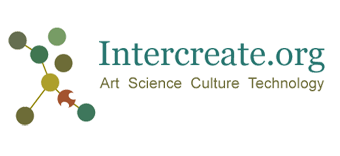SCANZ2013:Digital Anthropophagy
Digital Anthropophagy
Author: Vanessa Ramos-Velasquez
Abstract
The background of my Digital Anthropophagy theory comes from the “fair use” conundrum of the Information Age. One of my own art practices is to create films from found footage and openly exposed media online. I metabolize these materials into new contexts. In the creative process of this practice, in the age of the Internetworked Information Society as the producer of culture also engaged in remixing, offering a rich self-serving online buffet, I often thought of the Anthropophagic practices of some Brazilian indigenous tribes when they came into contact with their colonizers. The indigenous cannibal honorably eats the foreign in order to incorporate his strength, experiences and qualities and to see through the cannibalized foreigner’s eyes. But I find that in today’s digital culture, we unceremoniously consume the world around us in a globalized structure, thus quickly acquiring worldly references and spitting them out in a personal but also somewhat homogenized way. We have thus become both the cannibal and the cannibalized because of the wide and immediate access to information and the incredible reduction of time it now takes to consume that widely available culture. It no longer takes a passive person watching the ships arriving on the shore in order to consume what they might bring aboard, and conversely, for the colonizer in those ships to take away the riches they “discover” in far-away lands. Over five hundred years later, that exchange has now become cross-pollinated and more equal, and happening in an inhuman speed cycle. And the paradigm of power acquisition has now shifted from land ownership of colonies to ownership of information and creative property, especially engendered by the virtual world. This virtual world has started to disintegrate former imperialisms and push toward a “democratization of access” and “freedom of use” of information. And so I offer an analysis of Information Metabolism which drives human experiences. I hope that this theoretical essay furthers the discussion on “fair use” of media, leading to a simplification of global “fair use” cultural models and practice in the age of digital culture.
| Vanessa Ramos-Velasquez |
